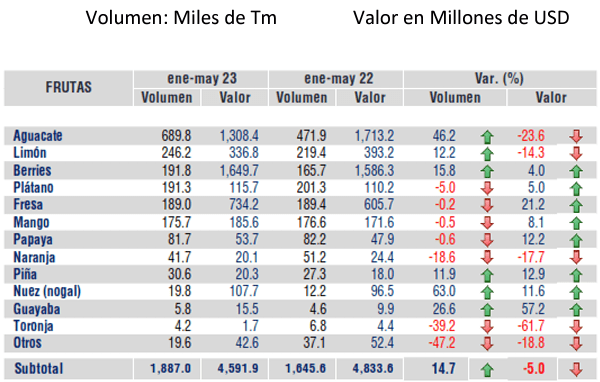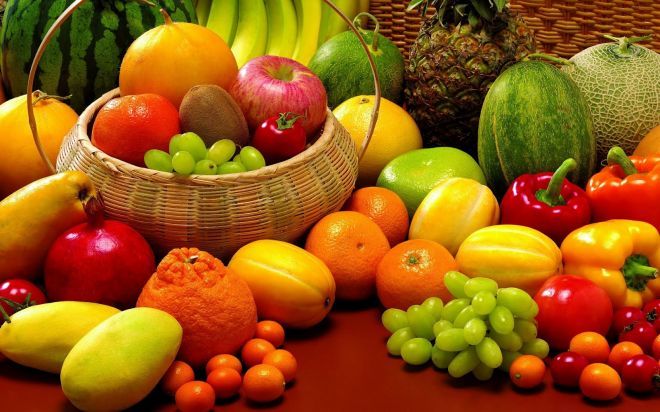The volume of fruit exports from Mexico increased 4.7% year-on-year from January to May 2023, to 1,887,000 tons, informed Grupo Consultor de Mercados Agrícolas (GCMA).
However, their commercial value decreased 5% to 4,591.9 million dollars.

The fruits that recorded an increase in their exported volume, in order of importance, were: walnuts (63%), avocado (46.2%), guava (26.6%), berries (15.8%), lemon (12.2%) and pineapple (11.9%).
Fruit exports
Meanwhile, there was an increase in the value of sales of guava (57.2%), strawberry (21.2%), pineapple (12.9%), papaya (12.2%), walnut (11.6%), mango (8.1%), banana (5%) and berries (4 percent).
More broadly, fruit and vegetable exports from January to May 2023 increased in volume 7.9% over 2022, while in value terms they increased 0.6%.
The agricultural sector is of great importance for Mexico, not so much because of its contribution to GDP (3.8% in 2021), but because around 28 million rural inhabitants depend on agricultural activities.
Hence its importance in terms of social, economic and environmental equity. In addition, Mexico is a net exporter of agricultural products.
Consequently, Mexico maintains a series of support programs for the sector and levels of tariff protection above both the overall average tariff (6.7%) and the average tariff for non-agricultural products (5.9%); the protection granted to agricultural products (WTO definition) was 13.2% in 2021.
On average, the highest tariffs, by WTO category, continue to apply to sugar and confectionery, and dairy products, with tariffs of 30 and 22.1%, respectively.
Food self-sufficiency
Mexico provides support to the agricultural, livestock and fisheries sector through a series of programs.
Since 2019, Mexico’s agricultural policy has been geared even more towards food self-sufficiency and supporting small producers. To this end, several support programs were merged, others were eliminated and new programs were created.
In general, the programs have components and subcomponents that change from one year to the next, as established in the rules of operation. Some of these programs have been notified as domestic support to the Committee on Agriculture and others to the WTO Committee on Subsidies and Countervailing Measures.
Mexico further notified the WTO that, in 2017 and 2018, it had provided subsidies to agricultural exports, but not so during the following years.

